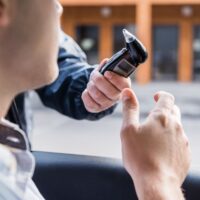Factors That Impact the Accuracy of a Breath Test

Getting pulled over and arrested for driving while intoxicated (DWI) in New York can be a confusing and intimidating experience. You find yourself at the mercy of law enforcement, facing an immediate suspension of your license, and severe consequences if convicted in court, including fines, jail time, and a criminal record. In most cases, one of the key pieces of evidence against you is the results of a breath test, which measures your blood alcohol concentration (BAC). However, it’s important to understand that breath tests are not infallible, and challenging the circumstances surrounding the breath test or even the results themselves might make up a chief area of your defense. Learn more below about the factors that impact the accuracy of a breath test. If you’ve been charged with DWI in Orange County or the Hudson Valley, contact Dupée & Monroe, P.C., to speak with our skilled and experienced Goshen DWI criminal defense lawyers.
1. Calibration and Maintenance of the Device
Breath testing devices, like all sophisticated instruments, require regular calibration and maintenance to ensure accurate readings. If the device used in your case was not properly calibrated or maintained, its results might be unreliable. Your criminal defense attorney can request maintenance and calibration records to determine if the device was in good working order when your test was conducted.
2. Residual Mouth Alcohol
Breath tests are designed to measure the alcohol content in your deep lung air, not the alcohol present in your mouth. However, residual mouth alcohol from recent drinking, burping, or regurgitation can skew the test results. Some mouthwashes, breath fresheners, and even dental work can also leave traces of alcohol in your mouth, leading to falsely high BAC readings.
3. Breathing Patterns
Your breathing pattern before taking the breath test can influence the results. Holding your breath, hyperventilating, or breathing shallowly can all affect the concentration of alcohol in your breath sample. Law enforcement officers are supposed to observe you for a certain period before administering the test to minimize this issue, but this protocol is not always followed.
4. Medical Conditions
Certain medical conditions can impact the accuracy of breath tests. For example, individuals with gastroesophageal reflux disease (GERD) or acid reflux may have higher BAC readings due to the presence of alcohol in their stomach contents. Diabetics in a state of ketoacidosis can produce acetone in their breath, which some devices may interpret as alcohol.
5. Environmental Factors
The environment in which the breath test is conducted can also play a role. The presence of certain chemicals or fumes, such as those from paint, gasoline, or cleaning products, can interfere with the device’s sensors and lead to inaccurate readings.
6. Device-Specific Issues
Different breath testing devices use various technologies to measure BAC, and each has its own potential issues. For example, some devices are more sensitive to temperature variations or require specific breathing patterns for accurate results.
Defending Against Breath Test Evidence
If you’ve been charged with a DWI and a breath test was part of the evidence against you, it’s crucial to have an experienced criminal defense attorney on your side. At Dupée & Monroe, P.C., we understand the complexities of breath test evidence and will thoroughly investigate the circumstances of your test. We’ll examine the calibration and maintenance records of the device, assess any medical or environmental factors that may have affected your results, and build a strong defense on your behalf.
Remember, a breath test result is not the final word in a DWI case. With the right legal representation, you can challenge the accuracy of the test and protect your rights. If you’re facing charges in Orange County or the Hudson Valley, call Dupée & Monroe, P.C. today at 845-294-8900 for immediate assistance.
